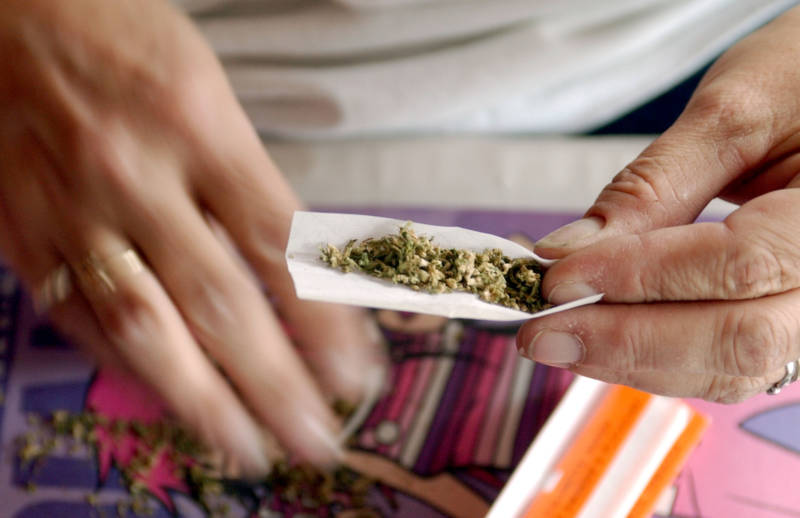A new study shoots down the notion that medical marijuana laws can prevent opioid overdose deaths, challenging a favorite talking point of legal pot advocates.
Medical Pot Laws Are Not an Antidote to U.S. Opioid Deaths, Study Finds

Researchers reexamined a 2014 analysis that linked medical marijuana laws to slower than expected increases in state prescription opioid death rates between 1999 to 2010. The original authors speculated patients might be substituting marijuana for painkillers, but they warned against drawing conclusions.
But when the new researchers included data through 2017, by which time many more states had legalized medical marijuana, they found the reverse: Those states actually saw a 23% higher-than-expected rate of deaths involving prescription opioids.
Legalizing medical marijuana "is not going to be a solution to the opioid overdose crisis," said Chelsea Shover of Stanford University School of Medicine. "It would be wonderful if that were true, but the evidence doesn't suggest that it is."
Shover and colleagues reported the findings Monday in Proceedings of the National Academy of Sciences. It's unlikely, they said, that medical marijuana laws initially caused one big effect and then the opposite. Any beneficial link was likely coincidental all along.
"We don't think it's reasonable to say it was saving lives before, but it's killing people now," Shover said.
The lower rates of opioid deaths were likely due to a combination of other factors in states that first legalized medical marijuana, said Dr. Keith Humphreys, a professor of psychiatry at Stanford University, who helped lead the study.
"The states that legalized first tended to be wealthier states," he said. "They're more blue politically, they have more health care, they use naloxone more, they jail people for drug use less. And all these differences could account for why the overdose rates in those states are different."
What's more, prescription pills once were involved in the largest share of overdose deaths, but that changed as use of heroin, and then fentanyl, surged. The studies on marijuana laws and opioid deaths don't account for that.
The new study undermines recent policy changes in some states. Last week, New Mexico joined New York, New Jersey and Pennsylvania in approving marijuana for patients with opioid addiction.
Authors of the original research welcomed the new analysis.
"We weren't happy when a billboard went up saying marijuana laws reduce overdose deaths," said Brendan Saloner of Johns Hopkins Bloomberg School of Public Health. "That was very hard for us to rein in."
Marijuana has been shown to help ease chronic pain, and other studies have suggested medical marijuana laws may reduce opioid prescribing. So there's still reason to believe that for some people, marijuana can serve as a substitute for opioids as a pain reliever.
As for addiction and the overdose crisis, "we should focus our research and policies on other questions that might make a difference," Shover said.
KQED's Laura Klivans contributed reporting to this article.